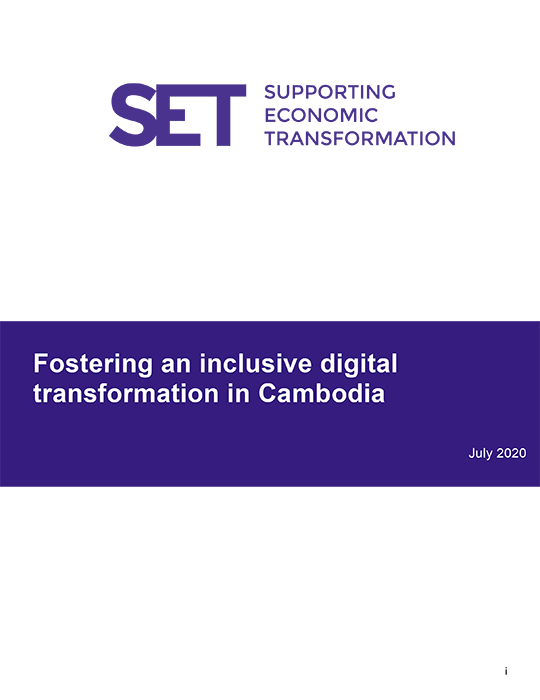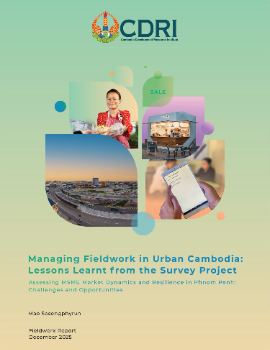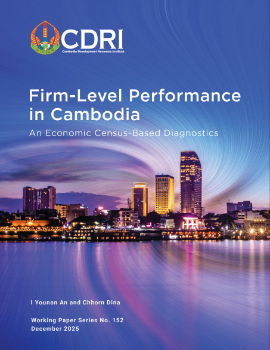
Abstract/Summary
Digitalisation in Cambodia is rapidly taking place but has had different results and provided varying opportunities across varying economic sectors. While digitalisation assists in advancing economic and social terms in Cambodia, public and private sectors, as well as different economic classes are receiving unequal benefits from improvements in digital technology. For example, evidence gathered through firm-level case studies shows that while payment systems significantly reduce transaction costs, urban (middle-class) consumers benefit more from these reductions in cost than other income groups. Managing the differential impacts of digitalisation on different sectors and groups is crucial for Cambodia to maintain inclusiveness while safeguarding political stability. Promoting inclusive development should be a central component of the Cambodian government’s new digital economy framework. Government will need to play a stronger role in digitalisation, especially now that the private sector has taken the lead in creating start-ups, in innovation and in forging large telecommunication deals. Cambodia’s digital profile is diverse, with both encouraging trends and significant gaps, such as gaps in the availability of digital skills. This paper reviewed suggestions from organisations and individuals on what the government of Cambodia could do to prepare for the digital economy. Their suggestions include. developing digital hard infrastructure; enhancing digital human resources by developing technical, cognitive and soft skills; promoting business ecosystems; promoting e-governance; and promoting digital trustworthiness throughout the economy. After reviewing these suggestions, the authors concluded that targeted measures are required to achieve inclusive development and proposed the following five-point digital agenda to guide public policy: promoting radical transformation and innovation in the manufacturing sector; developing appropriate and good quality skills for the future; nurturing the digital start-up economy for an inclusive economy (which will benefit the poorest in society); protecting and enabling the most vulnerable groups to take part in the digital economy; and establishing a public sector that leads by example.
Link to the full report: Fostering-an-Inclusive-Digitalisation-Transformation-in-Cambodia-July-2020.pdf



